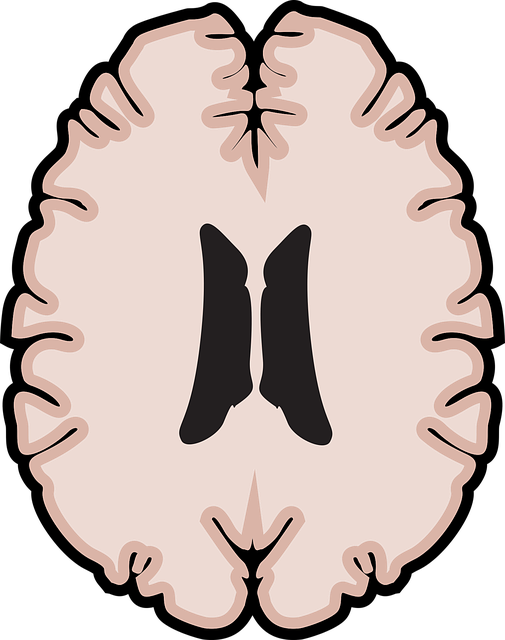Mental health policy, exemplified by Northglenn Anxiety Therapy's initiatives, serves as a cornerstone for accessible, holistic care, empowering communities through prevention, diagnosis, and treatment. Innovative local policies in Northglenn promote mental wellness coaching and crisis intervention, enhancing well-being and productivity. Advocacy, driven by organizations like NAT, challenges stigma, educates stakeholders, and promotes policy changes for quality care, early intervention, and evidence-based practices. This collaborative approach leads to tailored support, safe healthcare environments, and stronger mental health policies, ultimately benefiting individuals with anxiety, depression, and trauma.
Mental health policies play a pivotal role in fostering resilient communities, yet their impact is often overlooked. This comprehensive analysis delves into the intricate relationship between mental health legislation and community well-being, highlighting the transformative power of advocacy. From national frameworks to local implementations, such as the renowned Northglenn Anxiety Therapy program, we explore successful strategies.
By examining these approaches, we uncover effective methods for policy analysis and advocacy, offering insights that can shape more inclusive and accessible mental health care systems.
- Understanding Mental Health Policy and its Impact on Communities
- The Role of Advocacy in Shaping Effective Mental Health Care
- Northglenn Anxiety Therapy: A Case Study in Local Policy Implementation
- Strategies for Effective Mental Health Policy Analysis and Promotion
Understanding Mental Health Policy and its Impact on Communities

Mental health policy is a cornerstone of public health systems, shaping how communities address and support individuals struggling with mental illness. It encompasses a web of regulations, funding mechanisms, and services designed to prevent, diagnose, and treat mental health conditions. Effective mental health policy not only ensures accessibility to quality care but also promotes community-based interventions that foster mental wellness.
In Northglenn, for instance, anxiety therapy has become an increasingly accessible resource thanks to policies encouraging the development of Mental Wellness Coaching Programs and Crisis Intervention Guidance. These initiatives complement traditional therapy models by incorporating practices like mindfulness meditation, empowering individuals to manage their mental health proactively. Such policy-driven advancements reflect a growing recognition of the intricate link between mental health, community well-being, and overall societal productivity.
The Role of Advocacy in Shaping Effective Mental Health Care

Advocacy plays a pivotal role in shaping effective mental health care, ensuring that policies reflect the needs of communities and individuals alike. Through passionate advocacy, Northglenn Anxiety Therapy and similar organizations drive awareness about mental health issues, challenging stigma and promoting understanding. This involves educating policymakers, the public, and fellow healthcare providers about the complexities of mental illness, the importance of early intervention, and the effectiveness of various therapeutic approaches.
Effective advocacy goes beyond raising awareness; it drives policy changes that improve access to quality mental health services. By advocating for evidence-based practices, such as Depression Prevention initiatives and Community Outreach Program Implementation, advocates ensure that care is tailored to diverse needs. Moreover, they push for conflict resolution techniques within healthcare systems, fostering environments where individuals feel safe to seek help without fear of judgment or inadequate treatment. This collaborative approach ultimately contributes to stronger mental health policies, enhancing the lives of those facing anxiety, depression, and other mental health challenges.
Northglenn Anxiety Therapy: A Case Study in Local Policy Implementation

Northglenn Anxiety Therapy serves as a compelling case study illustrating successful local policy implementation in mental health services. This community-based initiative has made significant strides in addressing anxiety disorders, a prevalent mental health concern. By focusing on early intervention and comprehensive therapy, Northglenn has significantly reduced anxiety-related incidents among its residents. The program’s success can be attributed to several key factors, including a thorough risk assessment for mental health professionals, enabling them to tailor interventions effectively.
This approach, coupled with integrated depression prevention strategies and specialized trauma support services, has led to improved patient outcomes. Northglenn Anxiety Therapy demonstrates that localized efforts can have a profound impact on mental well-being, setting a benchmark for other communities to emulate. Its results underscore the importance of community engagement and evidence-based practices in shaping effective mental health policies.
Strategies for Effective Mental Health Policy Analysis and Promotion

In navigating the complex landscape of mental health policy analysis and advocacy, a strategic approach is essential. One effective method involves comprehensive research and data collection to identify gaps in existing services and support systems. By analyzing current policies and their impact on various demographics, advocates can pinpoint areas that require improvement. For instance, Northglenn Anxiety Therapy has successfully spearheaded local initiatives to reduce the stigma associated with mental illness, demonstrating the potential for community-based programs to drive policy change.
Additionally, leveraging storytelling and personal narratives through mental wellness podcast series production can humanize mental health issues. This strategy engages both policymakers and the public, fostering empathy and understanding. As these efforts gain traction, they contribute to a robust evidence-based argument for more inclusive and effective mental health policy analysis and advocacy, ultimately shaping healthier communities.
Mental health policy analysis and advocacy are essential components of creating sustainable, effective care systems. As demonstrated by the case study of Northglenn Anxiety Therapy, local initiatives can significantly impact community well-being. By understanding policy implications and fostering advocacy, we can navigate complex systems to promote mental wellness. Effective strategies involve engaging stakeholders, analyzing existing policies, and implementing data-driven solutions. Through continuous evaluation and adaptation, we can ensure that mental health services meet the diverse needs of communities, ultimately enhancing the overall resilience and quality of life for all individuals.














